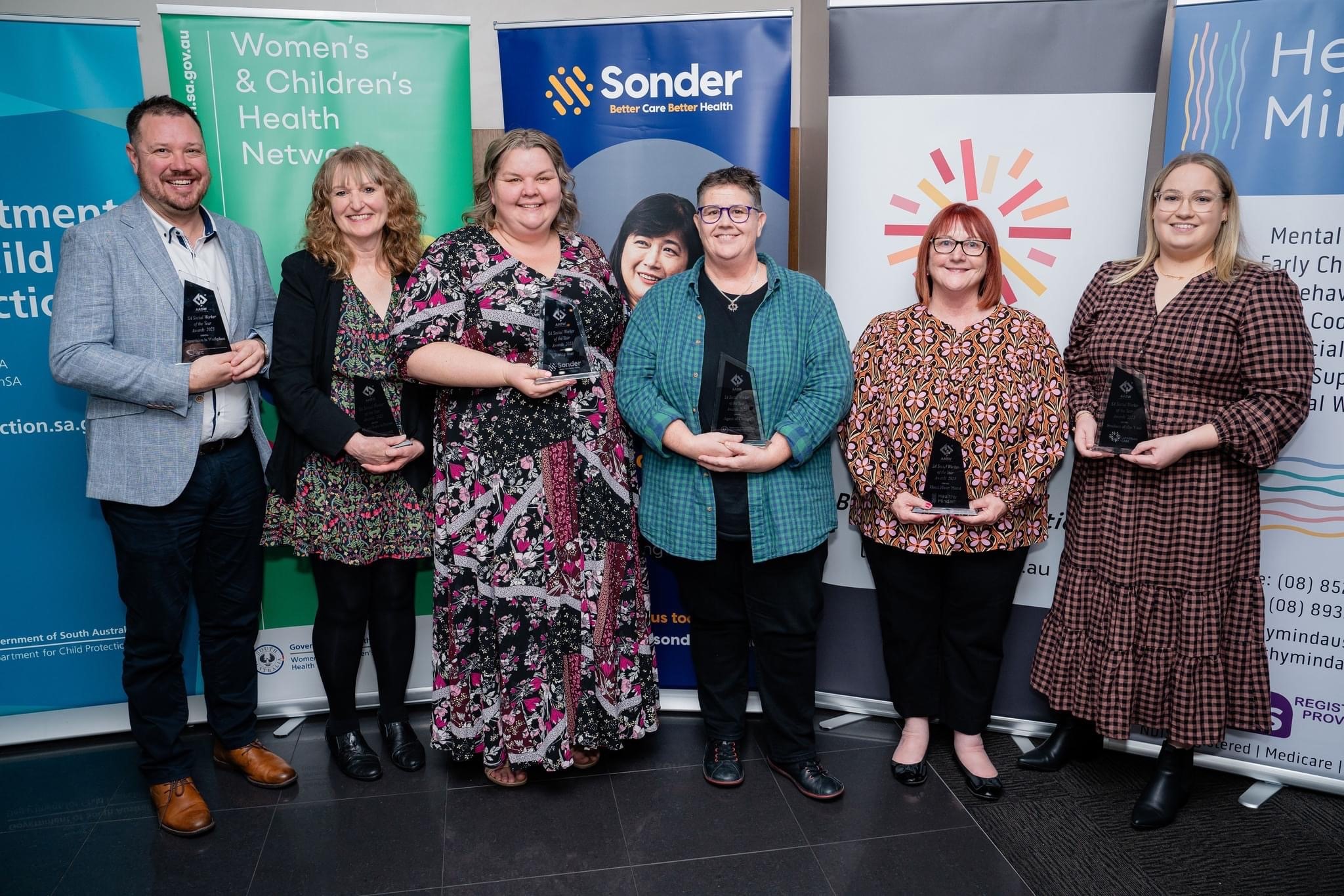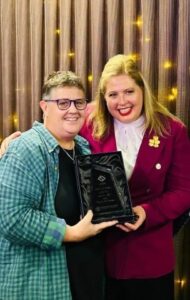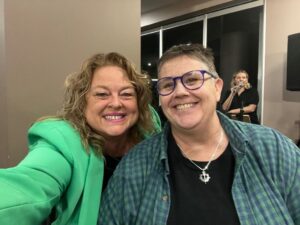
Kerry Beck’s (BSocWk Grad Entry ’05) dedication to helping vulnerable children and their families is what drives her to play the long game of improving the systems that support them. Her achievements in the sector were recognised at the 2023 South Australia Social Worker of the Year Awards when she received the ‘Agent of Change Award’. This award honours the outstanding contribution by a social worker who makes a transformative difference through organisational or systems change to individuals, families or communities.
Kerry began her career as a social worker in the youth homelessness sector. She then moved into mental health and drug and alcohol counselling and ran a mental health accommodation service for people with psychiatric disability. Once she moved into a management role it was a steady progression on to more senior roles.
We chatted to Kerry about her career journey and what inspires her to continue helping others.
Social Work can be a hard gig. What has kept you working in the sector for more than 30 years?
Working with vulnerable children is the driver for all that I’ve done. Regardless of where I’ve worked, I’ve always been very aware that when I’m working with a vulnerable adult, there’s often a vulnerable child or children connected to them who often don’t get seen. They don’t get a service of their own, they just sort of go through drug and alcohol services or homeless services or mental health services with their parent or carer.
It’s the children who are the most, most vulnerable, which is why I ended up in the child protection space. It’s been a thread throughout my whole career.

Your ‘Agent of Change Award’ recognised the systems change that you’ve achieved throughout your career. Can you tell us more about that?
I’m really honoured to have won this because it recognises someone who has had a long career in social work and has, over time, achieved considerable systemic change towards better outcomes for families and children.
I won the award for my work on some significant reform pieces.
I was involved in the reform of the supported residential facilities system, which was around psychiatric disability housing and homelessness.
Then, while working for Housing SA, I led the reform of the South Australian homelessness system. That had particular focus on kids that were in and out of homelessness with their parents. There was a lot of policy change around how the system responded to kids.
I’ve also worked to reform what’s now called the Child and Family Support System, which is like a pre-statutory or pre-child protection support system. It’s basically Family Services for kids that are at risk, to try and keep them with their families but also keep them safe so they don’t go to out of home care. The Child and Family Support System didn’t exist five years ago.
Making changes across government is a lengthy process and each of these reforms have taken several years to implement.
Can you describe the work you do in Safer Family Services?
As Director in the Department of Human Services, I oversee all of the service delivery of Safer Family Services. We have about 300 staff, about 200 of them are operational social workers and they are situated all across the State and they deliver what we call family preservation services.
Our vision is to keep kids at home, safe in their family, community and culture.
Mostly we receive referrals from the Department of Child Protection who have received a notification from someone who is concerned that a child is living in an unsafe environment.
Approaching a parent or carer and saying, “We’re here because someone thinks your kids aren’t safe,” is a really difficult conversation to have.
We work with the family on truth telling around what’s going on. Then we work with parents and carers to try and improve their parenting ability, and we also work directly with the kids to try and help the kids understand what they can put in place to keep themselves safe.
We also do a lot of work with schools, children’s centres, childcare centres, hospitals and the education department to try and put those protective factors in place for kids to keep them safe at home.
Then there’s the educational programs and community development programs – all with the aim of keeping kids safe.
Underpinning this is the strategic work I do. This work is around data collection and analysis from the family assessments we receive. And from that information that we collect, the Early Intervention Research Directorate and I work towards the reshaping of the system.
How do you think that your Flinders degree prepared you for your current role?
I’ve managed to maintain myself as a grassroots social worker at the same time as being a bureaucrat, which is quite unusual. And I think that having that social work degree and understanding the theoretical and historical underpinnings of social work is the thing that’s really kept me grounded.
I think that my degree at Flinders gave me a really good grounding in that because it gave me a theoretical understanding of what social work is. There’s a lot more to social work than people think sometimes.

What does being a Flinders graduate mean to you?
I was the first person in my family ever to do tertiary study. So it just makes me feel proud every time I think about that.
I liked the people and had great mates at Flinders who are still my friends. It’s a really lovely campus. It was just a really joyful place to be, fun, and quite a liberating sort of environment with more of an emphasis on social justice. I liked the student activism and the politics.
What would you say to anyone who is considering studying social work at Flinders?
I’ll absolutely say do it! It’s a real privilege to be a social worker.
Social work is a complex thing with substantial theoretical underpinnings that you have to engage with socially, politically, and intellectually, not just emotionally.
It’s important to enjoy it, but it is also important to take it seriously, because what you’re about to embark on will impact the lives of people. And you’ll have some of the best relationships that you’ll ever make.
Interested in studying a Master of Social Work? This program is accredited with the Australian Association of Social Workers and available via graduate entry.

